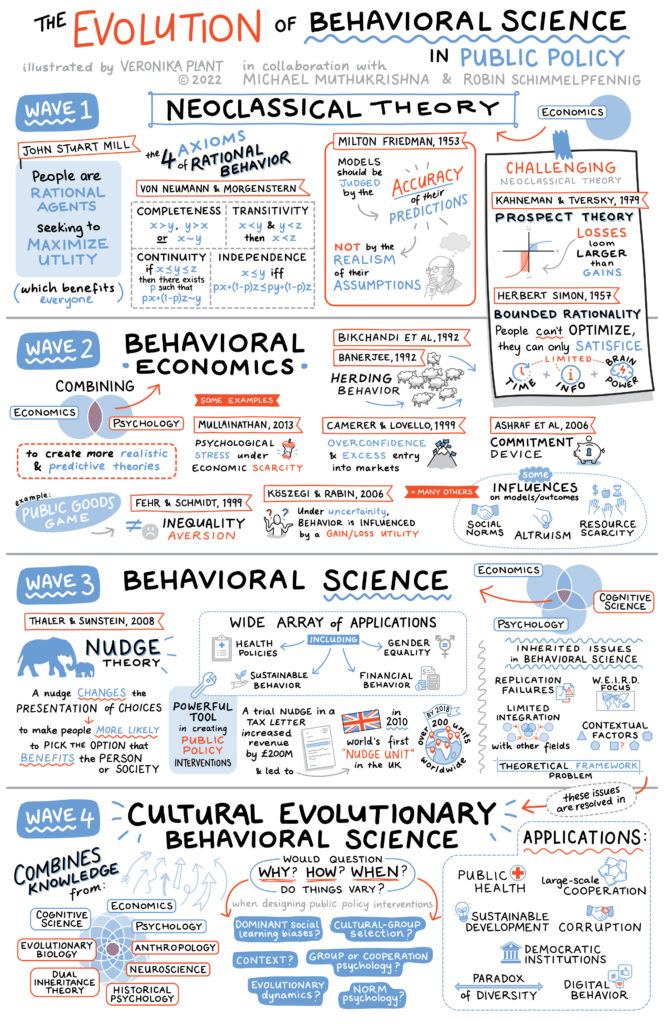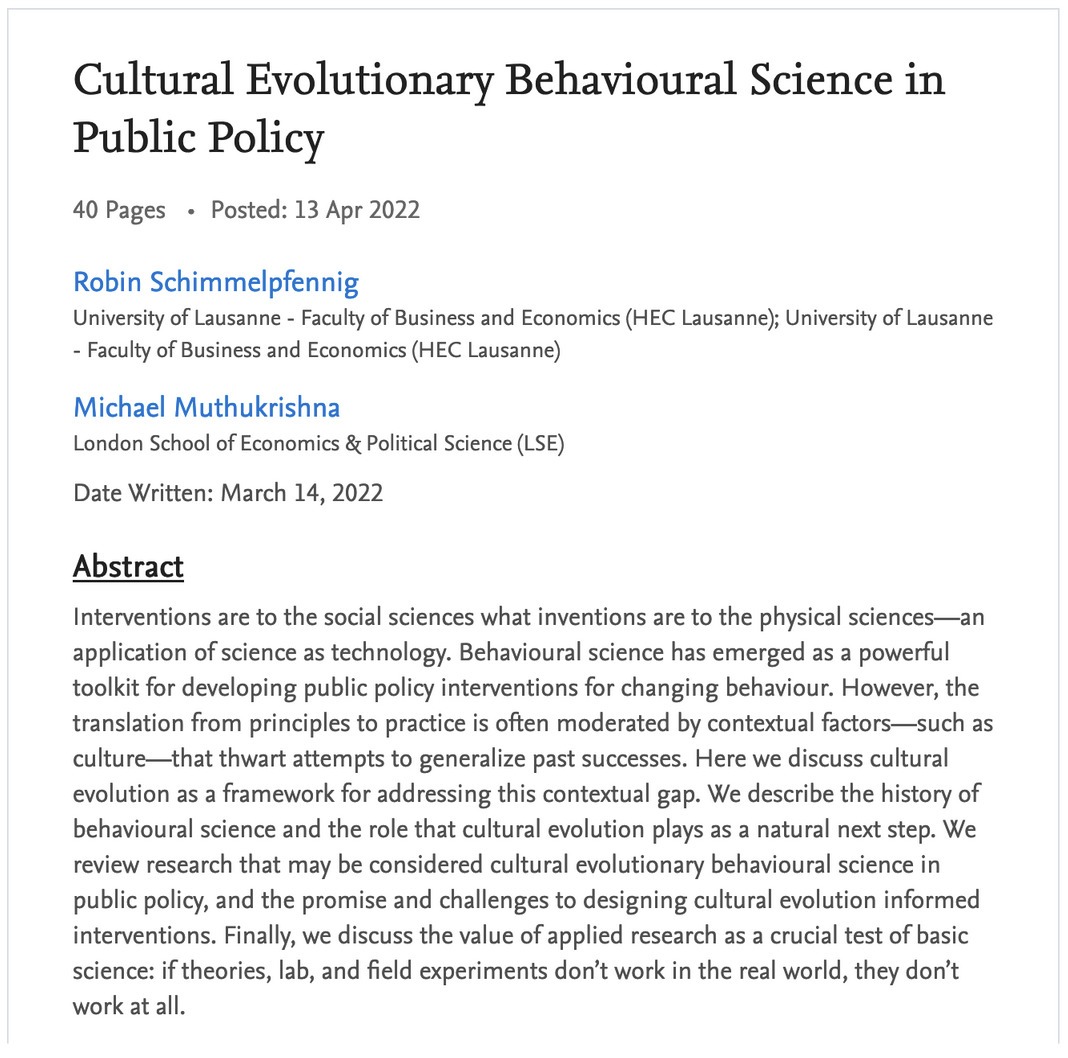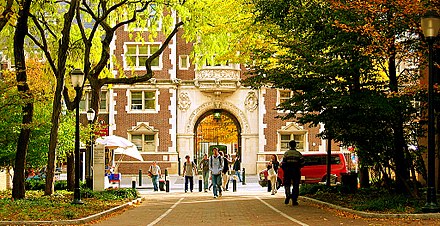April 21, 2022: Keynote speaker at Norms and Behavioral Change (NoBeC) Talks, Center for Social Norms and Behavioral Dynamics, .
I was invited to speak in the Norms and Behavioral Change (NoBeC) Talks at the University of Pennsylvania‘s Center for Social Norms and Behavioural Dynamics. I discussed some work on cultural evolutionary behavioral science and its applications in public policy (see also cultural evolutionary public policy).
My talk begins with an overview of the problem plaguing behavioral economics – the lack of a theoretical foundation that can guide policy interventions. I introduce cultural evolution as a possible solution to bridge the theoretical gap. By using cultural evolution as a theory of human behavior, improvements can be made in policy efficiency. For example, studying how social norms change and evolve over time will provide a foundation for implementing effective policy interventions in multicultural societies. Some of this history is captured in this figure from the paper:

Considering the historical path dependence of norms provides crucial in understanding why certain populations hold certain beliefs, like vaccine hesitancy and a distrust in healthcare systems. Identifying how people acquire cultural norms, and narrowing down the ultimate causes for behavior (through cultural distance tools like world.culturalytics.com) could provide insights into designing interventions that work.

Understanding cultural evolution and behavioral science can help reanalyze the literature on public policy, providing insights into why some approaches are successful while others are not. I explain how studying universal cognitive capabilities will provide a deeper understanding of norm change, and thus, improve policy design.
My thanks to the Center for Social Norms and the University of Pennsylvania for inviting me and organising the event.









